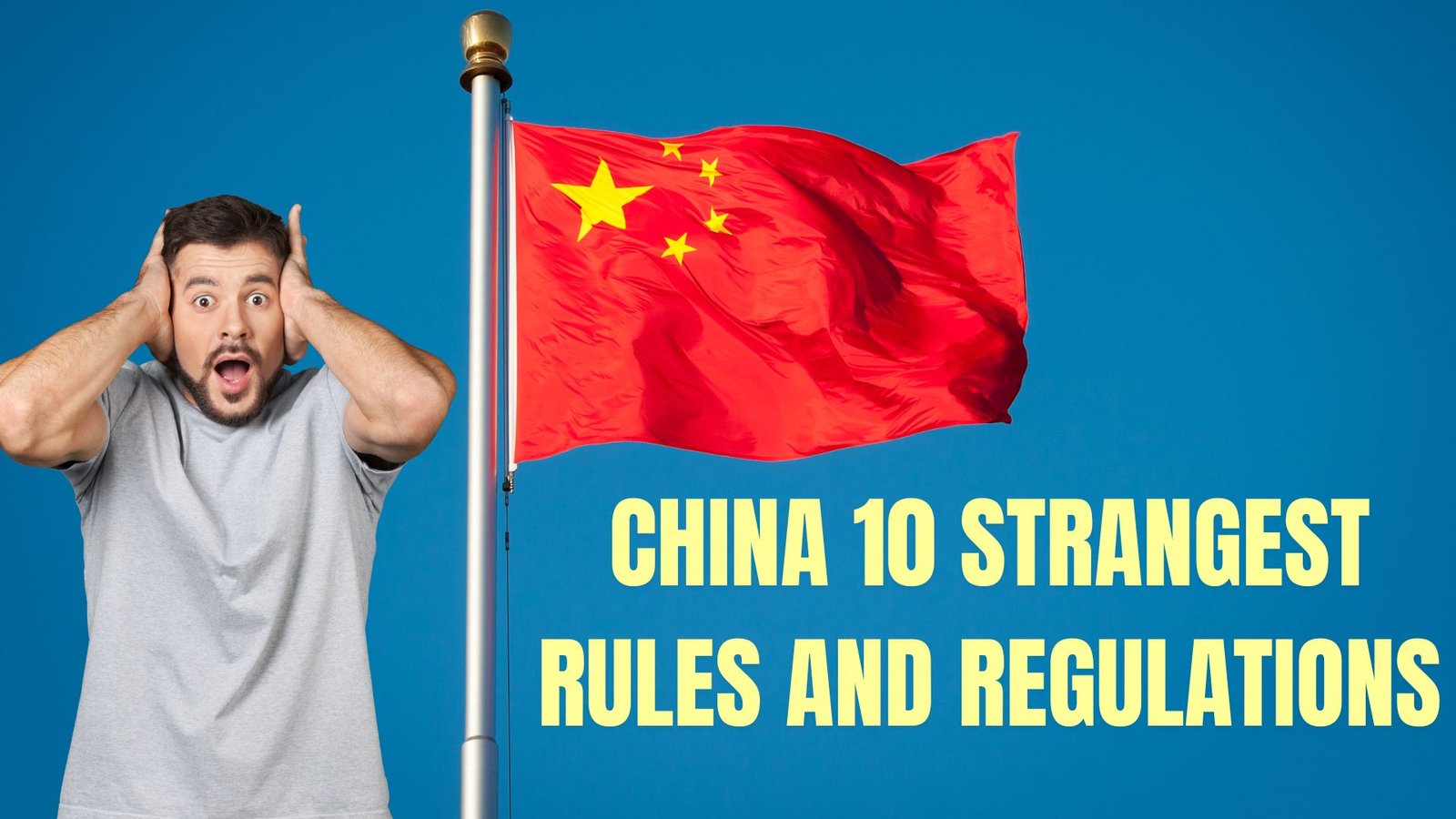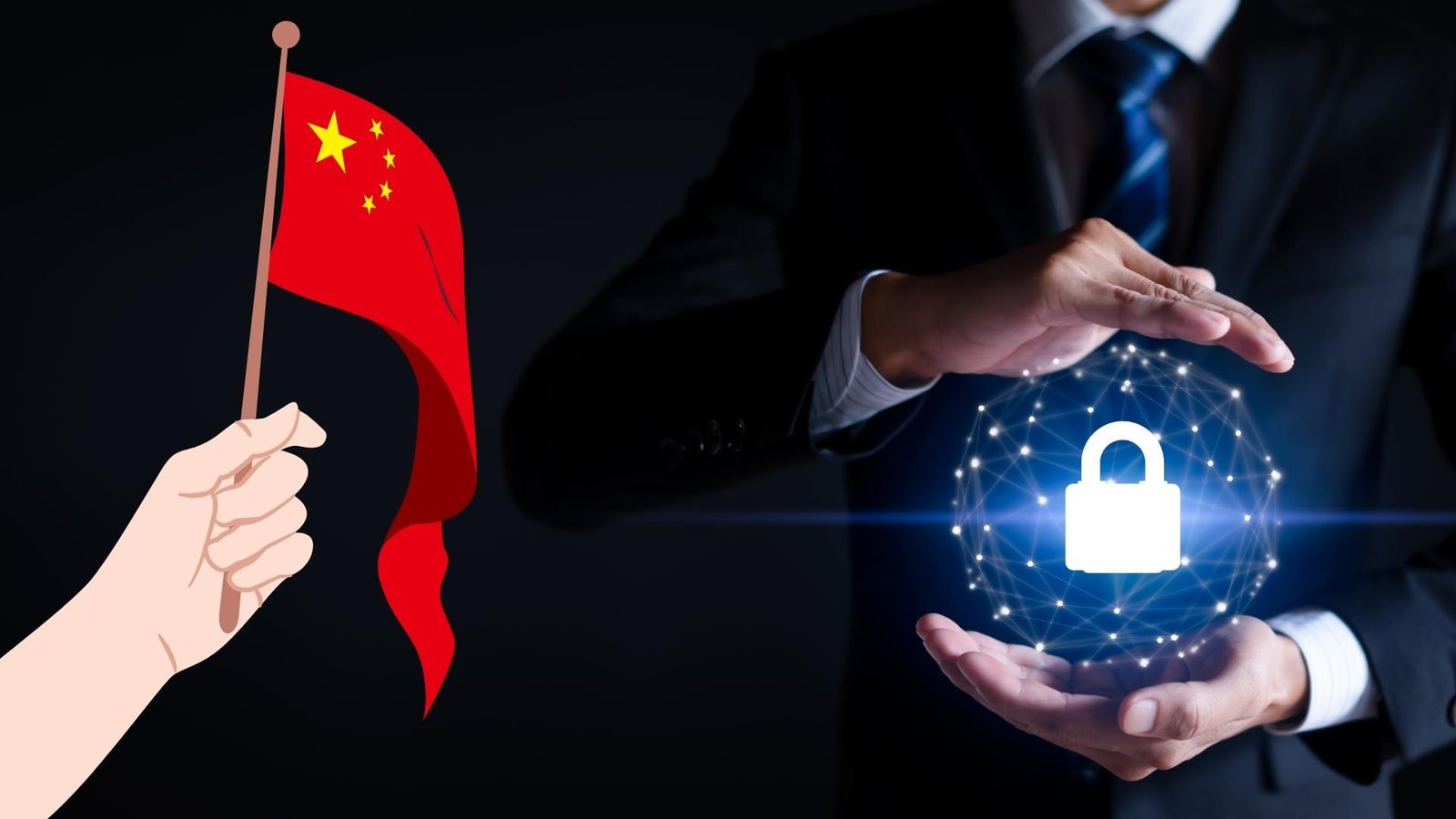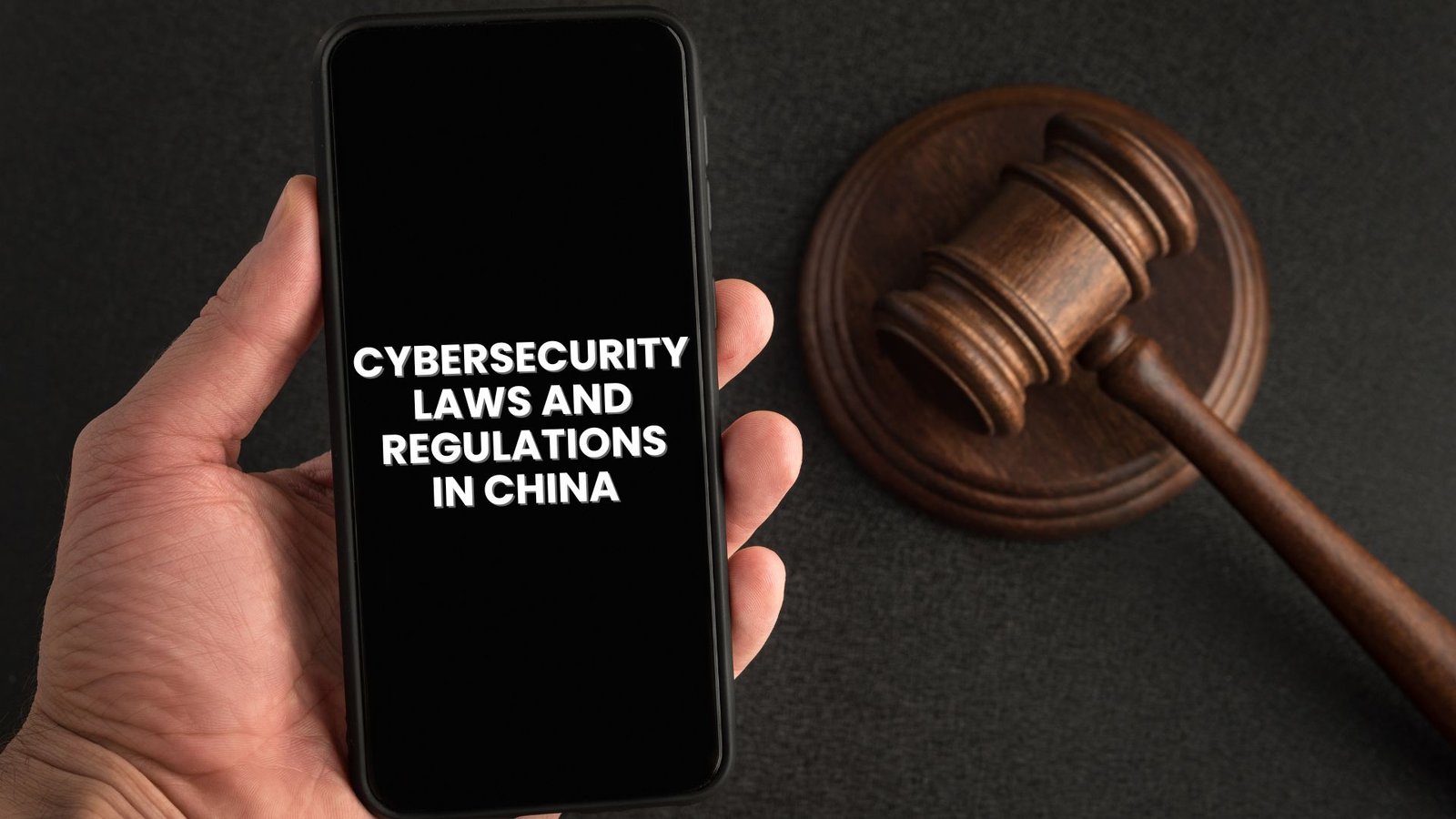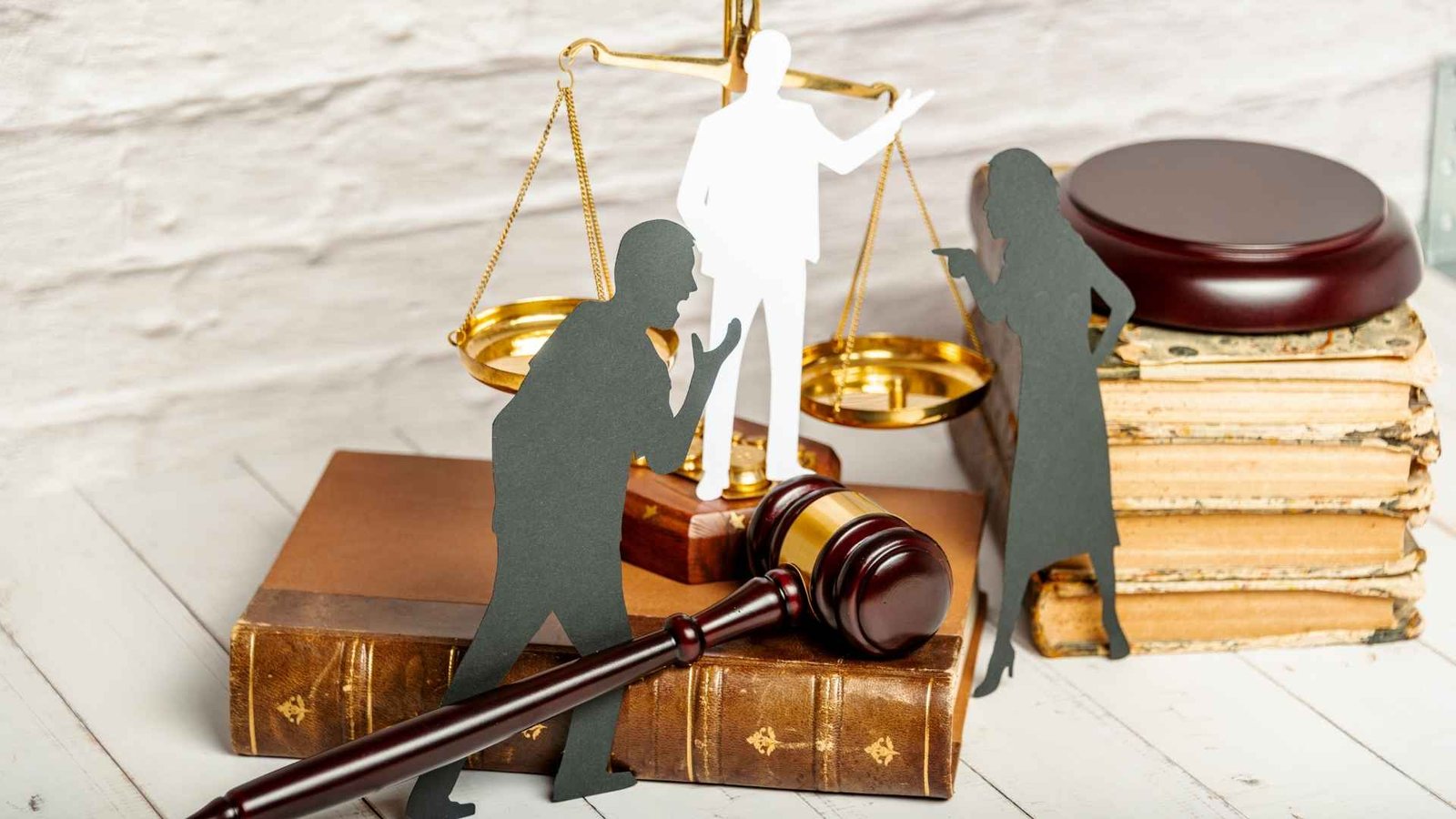On this page you will read detailed information about China 10 Strangest Rules and Regulations.
As a visitor to China, you may encounter rules and regulations that seem strange or unfamiliar. With over 5000 years of rich history and culture, China has developed a complex legal system that reflects its values and traditions. While some laws aim to maintain order and harmony, others may strike foreigners as odd or even absurd. In your travels, you may get a glimpse into this dichotomy. This article explores 10 of the most bizarre statutes in China today. From bans on time travel to limits on video game playing, these laws provide a window into a different way of life. Approach them with an open mind and resist quick judgement. The reasoning behind these rules may not be immediately clear to an outsider. But they exist for a reason in this ancient and intricate society. Let us examine and reflect on these 10 strangest rules and regulations in China.
No Reincarnation Without Government Approval: Tibetan Buddhism Restricted
According to Tibetan Buddhism, upon death, the Dalai Lama will reincarnate into a new body. However, in 2007, China instituted laws placing tight control over the selection of the next Dalai Lama. The Chinese government claims authority over the reincarnation process, stating no reincarnation is allowed without government approval.
Government Regulation of Religion
The Chinese government has long sought to regulate religious practice in China, including the selection of religious leaders. Requiring government approval for reincarnation is an attempt to exert control over Tibetan Buddhism and limit the influence of Tibetan religious leaders like the Dalai Lama. China fears the popular devotion to the Dalai Lama could be a threat to their control in Tibet.
Impact on Tibetan Buddhists
For Tibetan Buddhists, reincarnation is a sacred religious belief and the selection of the next Dalai Lama is a spiritual process. Government interference is seen as a violation of religious freedom and threatens an important Tibetan tradition. The current Dalai Lama has said he may choose not to reincarnate to avoid the Chinese government manipulating the selection of his successor for political gain.
International Criticism
The Chinese policy has been widely criticized by human rights groups and foreign governments. Requiring government permission for reincarnation is seen as an absurd and unjustified violation of religious liberty. However, China defends the law as necessary to prevent the Dalai Lama and his supporters from promoting separatism in Tibet. The issue remains a source of tension in China’s relationship with Western democracies and supporters of the Tibetan independence movement.
In summary, China’s policy restricting reincarnation without government approval threatens the religious freedom of Tibetan Buddhists and the Tibetan cultural tradition of identifying the next Dalai Lama. While China claims it is necessary to counter separatism, critics argue it gives the government far too much control over religious practice. The policy highlights the wider restrictions on civil liberties in China, especially for religious and ethnic minorities like Tibetans.
Jaywalking Is Illegal, Even if Cars Aren’t Coming
China takes pedestrian safety and traffic laws very seriously. Jaywalking, or crossing the street illegally, is strictly prohibited and punishable by fines. Even if there are no vehicles in sight, pedestrians must use a crosswalk. Some cities have gone as far as installing facial recognition systems to catch jaywalkers.
Harsh Penalties for Offenders
In many Chinese cities, the penalty for jaywalking is a fine ranging from 10 to 50 yuan ($1.50 to $7.50 USD). While a small amount, the fine aims to deter such behavior. Repeat offenders or those who argue with police may face detention of up to 15 days. Some critics argue such harsh punishment for a minor offense is unjustified. However, supporters counter that it helps promote social order and safety.
Cameras Monitor Intersections
To enforce jaywalking laws, some Chinese cities have installed surveillance cameras at intersections that detect people crossing against traffic lights. The cameras capture photos and video of the offenders, which police then use to issue fines. Several cities have started using facial recognition with the cameras to automatically identify jaywalkers. The systems scan a database of photos to find a match and mail fines directly to the offender’s home.
In the previous post, we had shared information about White Collar Crimes: When Privilege Becomes Criminal, so read that post also
Safety Concerns Prompt Strict Rules
Strict laws against jaywalking aim to address China’s high rates of traffic accidents and fatalities. According to the World Health Organization, over 260,000 people die in road traffic crashes in China each year. Chinese authorities hope that by instilling discipline in pedestrians and drivers alike, the number of accidents will decrease. While the laws may seem excessive, China sees them as necessary to promote traffic safety amid increasing vehicle ownership and urban populations.
The restrictions on jaywalking provide insight into the Chinese government’s strong emphasis on social order and control. Some argue this comes at the expense of personal freedoms, while others see it as prioritizing public welfare. For foreigners visiting China, learning and following all traffic laws, no matter how minor they seem, is critical to avoiding legal trouble. When in China, do as the Chinese do – use crosswalks and follow all traffic signals.
Video Game Consoles Banned Until 2015
In 2000, China banned the sale of video game consoles over concerns about their impact on children. Console makers like Sony, Microsoft, and Nintendo were prohibited from selling their PlayStation, Xbox, and Nintendo platforms in China for 15 years until the ban was lifted in 2015.
Fear of Corrupting Youth
The government was worried that video games could be a corrupting influence on China’s youth. There were concerns about the violence and sexual content in some popular console games. Banning consoles was seen as a way to protect children and encourage them to spend their time on more productive activities like education or exercise.
Lost Revenue and Black Market
The console ban cost the gaming industry billions of dollars in lost revenue over 15 years. Some estimated the losses reached over $10 billion. Despite the ban, gaming remained popular and a black market emerged for smuggled consoles and pirated games. Many Chinese gamers purchased consoles and games on the black market or imported them from other countries.
Lifting the Ban
In 2015, China officially lifted the ban on video game consoles. The government recognized that gaming had become a mainstream form of entertainment worldwide and the ban was futile. Sony, Microsoft, and Nintendo were finally allowed to sell their PlayStation 4, Xbox One, and Nintendo Switch platforms in China. However, games still required approval from censors, and many popular titles were still banned or censored due to content concerns.
While the console ban stunted the growth of China’s gaming industry for years, lifting it has opened up many new opportunities. Console gaming has become hugely popular, and China is now the world’s largest gaming market. The government maintains some control over games through its censorship policies but has largely accepted gaming as a mainstream cultural activity. Overall, lifting the outdated ban on consoles was an important step toward giving Chinese citizens more freedom and access to entertainment options.
Time Travel Is Strictly Prohibited
The Chinese government takes time travel very seriously and has outlawed it entirely. According to Article 101 of China’s Criminal Law, it is illegal to “fabricate or spread false information to disturb economic order or social order.” The government interprets this broadly and believes that promoting or engaging in time travel could cause mass panic and threaten social stability.
No Time Machines Allowed
China’s legislature and judicial system have banned time machines and related technology that could potentially alter events in the past or future. The manufacture, sale or distribution of technology for the purpose of time travel is illegal. Violators face heavy legal punishment, including imprisonment. The ban applies to both physical time machines as well as virtual ones in movies, television shows or books.
Censorship of Time Travel in Media
The Chinese government exercises strict control over media and entertainment. Movies, TV shows, books, and online content that deal with time travel are heavily censored or banned. The authorities believe that exposure to the concept of changing past events could undermine the Communist Party and its history. Even harmless references to time travel are forbidden in some cases. The government’s pervasive censorship and restrictions on creative works have been widely criticized.
An Attempt to Control Ideas
At its core, China’s prohibition of time travel represents an effort to control ideas that could challenge the established political and social order. While time travel is physically impossible with today’s science and technology, the mere notion of altering past events threatens the Communist Party’s tight grip on power and its particular version of history. The ban highlights the extreme measures China’s authoritarian government will take to suppress speculation and ensure ideological purity. For now, time travel will remain in the realm of imagination and science fiction outside of China.
Winnie the Pooh Banned for Resemblance to President Xi
In recent years, Chinese censors have banned images of Winnie the Pooh after internet users used the character to mock Chinese leader Xi Jinping. Any references to the silly old bear are swiftly removed from Chinese social media.
The ban originates from 2013 when Xi Jinping met with then-US President Barack Obama. An image of Xi and Obama walking together spurred comparisons of Xi to Pooh bear. Xi was portrayed as Pooh, and Obama as the slender tiger character Tigger. The image went viral on Chinese social media before censors removed it, but the comparisons stuck.
Crackdown on the Bear
In the following years, censors have diligently blocked any references to Pooh bear on Chinese social media and websites. In 2018, Chinese authorities banned the release of Disney’s Christopher Robin film, which features Pooh and his friends. The government never provided an official reason for the film’s ban, but most observers believe it was due to Pooh’s resemblance to Xi.
Wider Suppression of Political Dissent
The banning of Winnie the Pooh is indicative of the Chinese government’s wider crackdown on political dissent and any speech that could undermine the Communist party’s authority. Under Xi Jinping, China has enacted strict censorship laws and punished citizens for speech deemed “subversive” or critical of the government. The Pooh bear ban may seem silly on its face but is in line with Xi’s harsh policies restricting civil liberties and freedom of expression.
Xi Jinping’s authoritarian control and cult of personality have made any depictions that mock or belittle him taboo. Unfortunately for Pooh bear fans in China, that means the silly old bear will remain on the blacklist for the foreseeable future. The residents of the Hundred Acre Wood are just collateral damage in Xi’s mission to eliminate political dissent.
Conclusion
While some of China’s laws and regulations may seem odd or even absurd to outsiders, it’s important to consider the cultural context and history behind them. The Chinese government has long regulated many aspects of public and private life in the name of social stability and harmony. Some rules aim to address legitimate problems, while others promote traditional values or cultural norms. Regardless of our personal opinions, it’s useful for foreigners to be aware of these laws when visiting China. Approaching them with an open and respectful attitude can help prevent misunderstandings. With continued exposure to the outside world, China’s legal system will likely evolve over time. But for now, peculiar as they may be, these regulations reflect China’s distinctive approach to governance and order.
Disclaimer
The information and services on this website are not intended to and shall not be used as legal advice. You should consult a Legal Professional for any legal or solicited advice. While we have good faith and our own independent research to every information listed on the website and do our best to ensure that the data provided is accurate. However, we do not guarantee the information provided is accurate and make no representation or warranty of any kind, express or implied, regarding the accuracy, adequacy, validity, reliability, availability, or completeness of any information on the Site. UNDER NO CIRCUMSTANCES SHALL WE HAVE ANY LIABILITY TO YOU FOR ANY LOSS OR DAMAGE OF ANY KIND INCURRED AS A RESULT OR RELIANCE ON ANY INFORMATION PROVIDED ON THE SITE. YOUR USE OF THE SITE AND YOUR RELIANCE ON ANY INFORMATION ON THE SITE IS SOLELY AT YOUR OWN RISK. Comments on this website are the sole responsibility of their writers so the accuracy, completeness, veracity, honesty, factuality and politeness of comments are not guaranteed.
So friends, today we talked about China 10 Strangest Rules and Regulations, hope you liked our post.
If you liked the information about China 10 Strangest Rules and Regulations, then definitely share this article with your friends.










